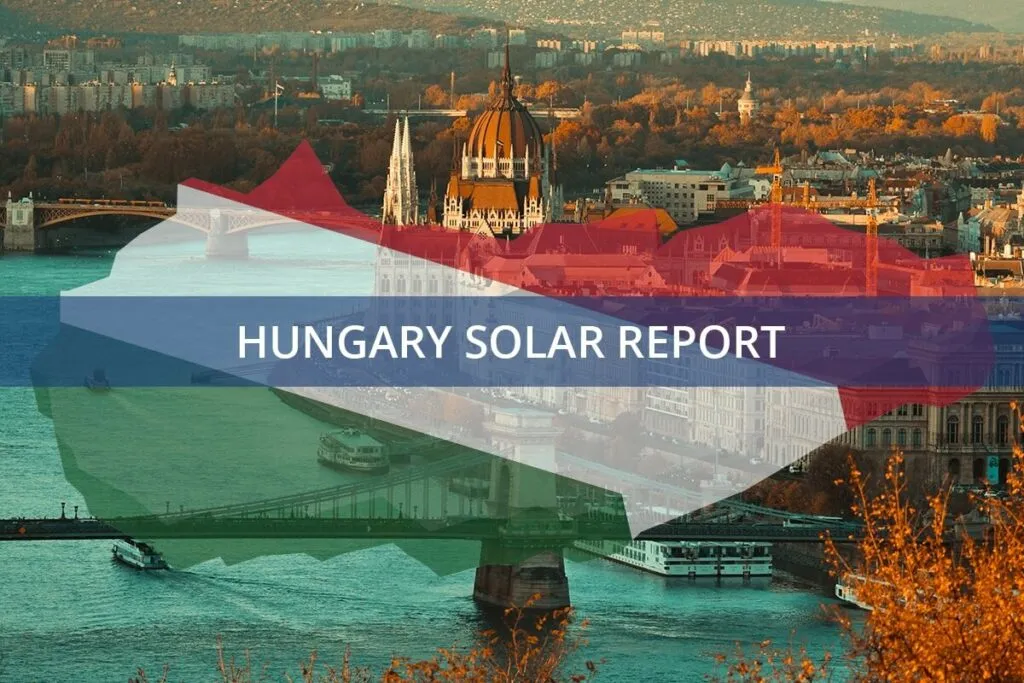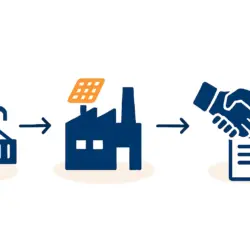Hungary has announced plans to boost its solar energy capacity by over 100 MW with new solar parks from the state-owned energy company, MVM. The initiative was unveiled by Péter Kaderják, head of Hungary’s Energy and Public Utilities Regulatory Authority (MEKH).
Solar Power: Fueling Hungary’s National Energy Strategy
Hungary’s ambitious solar energy plans are a cornerstone of the nation’s renewable energy strategy. With annual solar radiation of 1,200-1,300 kilowatt-hours per square meter, the country has the potential to generate around 4,500 terawatt-hours (TWh) of solar power annually, according to the International Renewable Energy Agency (IRENA).
The country is aiming for a renewable energy share of 21% by 2030 and 37% by 2040—targets that underscore the critical role of solar in its energy transition. This focus on solar power is central to Hungary’s work to reduce its dependence on fossil fuels and lower carbon emissions.
Building these new solar parks is a crucial step toward achieving these goals. The additional 100 MW of capacity will bolster Hungary’s long-term energy security and environmental sustainability. Hungary’s solar capacity is projected to surpass 8 GW by mid-2025, a significant milestone for its renewable energy sector, as detailed in this PVKnowhow article: Hungary Solar Capacity: Stunning 8 GW Milestone by 2025.
Solar Energy Targets: Progress and Grid Integration Challenges
Hungary has made considerable progress in solar energy, with expansion targets of 6,000 MW by 2030 and 12,000 MW by 2040. These figures would account for about 26% of the country’s total electricity consumption.
However, this rapid growth has also created challenges, particularly in integrating new capacity into the grid. To help manage this growth, Hungary has introduced a new law allowing hybrid power plants to connect to the grid without extensive construction.
This legislation is expected to help balance the grid and reliably integrate new solar capacity. The country has already demonstrated extraordinary progress in this area, achieving a 20% share of solar power in its electricity mix (Hungary Solar Energy Integration: 20% Achievement is Extraordinary). Integrating solar power into the grid requires careful planning and coordination, and hybrid power plants offer a promising solution.
Hybrid Power Plants: A Solution for Grid Stability
The new law allowing hybrid power plants to connect to the grid marks a significant step in Hungary’s renewable energy development. These systems are expected to alleviate the pressure on the grid from rapid solar expansion and help Hungary achieve its renewable energy targets more efficiently.
Integrating hybrid power plants is a strategic move that will bolster the stability and reliability of Hungary’s energy system. By combining solar with other renewable sources, these plants can provide a more consistent flow of electricity, even when solar production fluctuates.
The construction of new solar parks by MVM, combined with the introduction of hybrid power plants, underscores Hungary’s commitment to renewable energy. These initiatives are expected to play a crucial role in the country’s energy transition and its efforts to reduce carbon emissions.
Hungary’s Path to a Sustainable Energy Future
Hungary’s latest solar developments underscore the country’s dedication to its renewable energy goals. Expanding its solar parks and introducing hybrid systems are key components of a strategy to reduce reliance on fossil fuels and lower carbon emissions.
The government’s efforts to integrate new solar capacity into the grid reflect its commitment to a sustainable energy future. By focusing on renewable energy, Hungary is setting an example for other countries in the region. Furthermore, Hungary has achieved an extraordinary milestone, with solar energy contributing to 25% of its electricity generation (Hungary solar energy Achieves 25% Generation: An Extraordinary Milestone).
As Hungary continues to invest in solar energy, it is building a more sustainable and environmentally friendly energy system. The combination of new solar parks and hybrid power plants will help the country achieve its renewable energy targets and contribute to global efforts to combat climate change.



